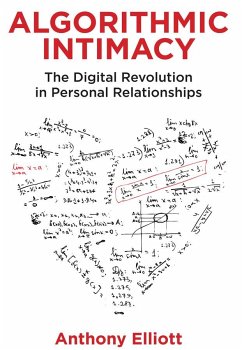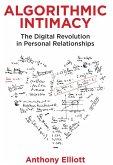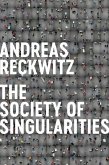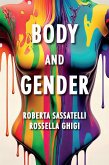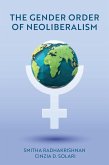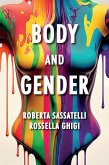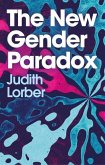Artificial intelligence not only powers our cars, hospitals and courtrooms: predictive algorithms are becoming deeply lodged inside us too. Machine intelligence is learning our private preferences and discreetly shaping our personal behaviour, telling us how to live, who to befriend and who to date.
In Algorithmic Intimacy, Anthony Elliott examines the power of predictive algorithms in reshaping personal relationships today. From Facebook friends and therapy chatbots to dating apps and quantified sex lives, Elliott explores how machine intelligence is working within us, amplifying our desires and steering our personal preferences. He argues that intimate relationships today are threatened not by the digital revolution as such, but by the orientation of various life strategies unthinkingly aligned with automated machine intelligence. Our reliance on algorithmic recommendations, he suggests, reflects a growing emergency in personal agency and human bonds. We need alternatives, innovation and experimentation for the interpersonal, intimate effort of ongoing translation back and forth between the discourses of human and machine intelligence.
Accessible and compelling, this book sheds fresh light on the impact of artificial intelligence on the most intimate aspects of our lives. It will appeal to students in the social sciences and humanities and to a wide range of general readers.
Hinweis: Dieser Artikel kann nur an eine deutsche Lieferadresse ausgeliefert werden.
In Algorithmic Intimacy, Anthony Elliott examines the power of predictive algorithms in reshaping personal relationships today. From Facebook friends and therapy chatbots to dating apps and quantified sex lives, Elliott explores how machine intelligence is working within us, amplifying our desires and steering our personal preferences. He argues that intimate relationships today are threatened not by the digital revolution as such, but by the orientation of various life strategies unthinkingly aligned with automated machine intelligence. Our reliance on algorithmic recommendations, he suggests, reflects a growing emergency in personal agency and human bonds. We need alternatives, innovation and experimentation for the interpersonal, intimate effort of ongoing translation back and forth between the discourses of human and machine intelligence.
Accessible and compelling, this book sheds fresh light on the impact of artificial intelligence on the most intimate aspects of our lives. It will appeal to students in the social sciences and humanities and to a wide range of general readers.
Hinweis: Dieser Artikel kann nur an eine deutsche Lieferadresse ausgeliefert werden.
"Algorithms impact today all aspects of everyday life, and what is most personal in it. Anthony Elliott masterfully shows us what is at stake in this curve of digital life, where our intimate being-with-others is built and transformed."
Massimo Durante, University of Turin
"Anthony Elliott offers intriguing insights into how the algorithms embedded in digital technologies contribute to people's closest relationships. Drawing on popular culture for examples, Elliott's lucid writing and expansive focus help the reader make sense of a rapidly evolving landscape of digitized love, sex and friendship."
Deborah Lupton, UNSW Sydney
"[This book] provides the reader with a distinctly critical understanding of how automation and prediction engage users in personal digital intimacy projects: working on the self, consuming digital relationships, optimizing the psyche... Algorithmic Intimacy is not a simple warning of a dystopian future of out-of-control machine intelligence. Instead, it is about the one-dimen-sionality of today's industrial AI products and their promises of simplicity and conformism in social relationships. It is therefore also an emphatic call to delve deeper into the multiple ways in which algorithms will shape the interior self, create new digital identities, and define our being-with-others."
Science and Technology Studies
"Anthony Elliott's books on the social and cultural consequences of the development of artificial intelligence... form a comprehensive, multidimensional picture of the contemporary digital revolution."
Dariusz BrzeziDski, Thesis Eleven
Massimo Durante, University of Turin
"Anthony Elliott offers intriguing insights into how the algorithms embedded in digital technologies contribute to people's closest relationships. Drawing on popular culture for examples, Elliott's lucid writing and expansive focus help the reader make sense of a rapidly evolving landscape of digitized love, sex and friendship."
Deborah Lupton, UNSW Sydney
"[This book] provides the reader with a distinctly critical understanding of how automation and prediction engage users in personal digital intimacy projects: working on the self, consuming digital relationships, optimizing the psyche... Algorithmic Intimacy is not a simple warning of a dystopian future of out-of-control machine intelligence. Instead, it is about the one-dimen-sionality of today's industrial AI products and their promises of simplicity and conformism in social relationships. It is therefore also an emphatic call to delve deeper into the multiple ways in which algorithms will shape the interior self, create new digital identities, and define our being-with-others."
Science and Technology Studies
"Anthony Elliott's books on the social and cultural consequences of the development of artificial intelligence... form a comprehensive, multidimensional picture of the contemporary digital revolution."
Dariusz BrzeziDski, Thesis Eleven

